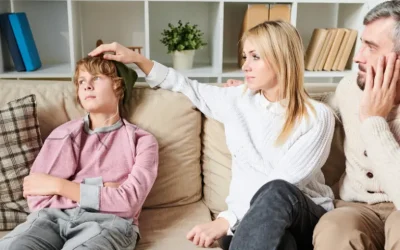Counseling Services in Detroit, Michigan
Our licensed therapists help people in Detroit, MI and throughout Wayne County live happier and more fulfilled lives.
-Hidden on Purpose - DO NOT DELETE
Make Relationships Better
Your relationships don’t have to be in turmoil to benefit from couples or family counseling. Therapy can take a good thing and make it great. When it comes to your relationships, our trained therapists can help you strengthen your bond with loved ones through improved communication, intimacy and trust-building. Scheduling an appointment!
Learn to Thrive at Work
The workplace is commonly cited as a source of stress and anxiety for most individuals in your community. Start My Wellness allows you to discuss these workplace challenges in a judgment-free zone. Our counselors and therapists can help you navigate these struggles by giving you the tools you need to communicate in a healthy way, assert your needs and identify patterns that may have been working against you. Scheduling an appointment!
De-Stress & Excel at School
Students of all ages can take advantage of our mental health counseling services to overcome daily stressors related to school. Whether it be a change in routine, a heavy workload, or social pressures, a qualified therapist can help you work through these life challenges in the most effective way. Don't delay scheduling your first appointment!
Conveniently located on 9 Mile, between Wrenson and Leitch Roads, you can find our office just east of Woodward and close to Downtown Troy. Whether you need assistance overcoming a difficult experience, dealing with anxiety or depression, or simply want to improve the quality of your life, our highly-skilled and licensed counselors will work with you to achieve your goals.
We are accepting new patients and offer phone, virtual or in-person appointments.
Questions? Please call 248-514-4955
Start My Wellness Blog
Explore success stories and information related to mental health, holistic wellness and self-improvement.
Have a question about a post? Need to schedule an appointment?
Call 248-514-4955
Understanding the Impact of Trauma on Relationships
Past traumas can surface in every relationship, influencing interactions and disrupting the health essential for a healthy relationship.
Breaking Free: Ending the Cycle of Abusive Relationships
Recognizing and breaking free from these harmful patterns is vital for victims’ safety and vitality.
Effective Therapies and Medications for Various Types of Trauma
Anyone can potentially experience trauma, finding healthy ways to cope with it and recover can be a challenging journey.
Supporting a Transgender Child: Navigating the Journey
Supporting a transgender child through their journey to gender identity is a critical component of their emotional and psychological health.
But I don’t want my child to have Autism…
When we give parents the diagnosis of autism spectrum disorder, I have heard many questions and responses from parents, but I have never once heard a parent reply, “But I don’t want my child to have autism.”
Understanding Avoidant Attachment Style
At its core, an avoidant attachment style acts as a coping mechanism to maintain a sense of control and self-sufficiency, often at the expense of close personal connections.
Exploring Autism: Understanding Its Diverse Types
The understanding of autism has evolved significantly in recent years, leading to the current classification as a spectrum disorder rather than as separate conditions such as Asperger Syndrome or PDD-NOS.
How Self-Esteem Assists in Navigating Tough Situations
When navigating life’s difficulties, healthy self-esteem is an anchor, providing the emotional stability and courage to face adversity head-on.
Is Codependency Bad in Relationships?
It’s not about labeling codependence as bad but understanding the conditions under which healthy dependence supports growth versus situations where codependency impedes personal and mutual development.
Understanding the Autism Diagnosis Process
The process of diagnosing autism is multifaceted, involving a series of observations, evaluations, and professional consultations to accurately identify the presence of autism.

















